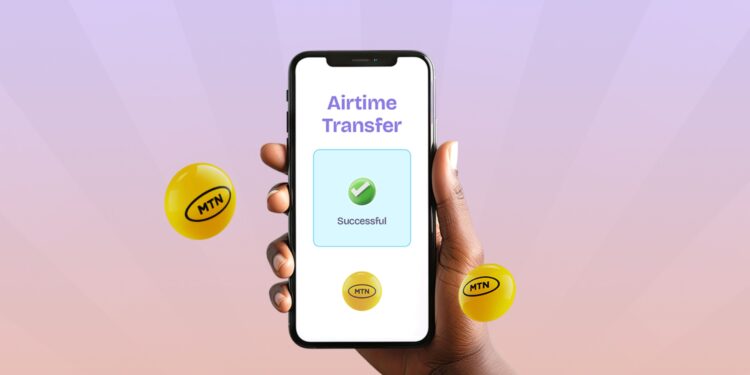When the Nigerian Communications Commission approved a 50% increase in tariffs as announced in January 2025 by the Honourable Minister of Communication, Innovation, and Digital Economy, Mr Bosun Tijani, there was strong resistance from the public, particularly due to the current harsh economic realities. Candidly, it is almost impossible to survive without telecommunication in the 21st century. Businesses now operate online without physical structures, some tertiary institutions offer online classes with recognized certifications approved by the National Universities Commission (NUC), and students scroll on YouTube, Facebook, TikTok, and other platforms to avoid boredom, among other reasons.
As a professional English tutor, I have observed common mistakes related to telecommunication among Nigerians who use English as a second language in their everyday communication. These errors were highlighted in today’s session with accurate and in-depth analysis for a comprehensive understanding.
Recharge Card or Airtime?
Using a phone without the ability to communicate with colleagues, family members, friends, and others is irrelevant. Therefore, one needs to purchase a card from telecommunication companies to achieve that without unnecessary stress. However, referring to it as “airtime” or “recharge card” is not standard English. In fact, claiming global communicative competence while using those terms is laughable and embarrassing. According to the Cambridge Dictionary, airtime is defined as “the amount of broadcasting time that someone or something has on radio or television,” as in “The smaller political parties are campaigning to be allowed free airtime before general elections.”
Other example sentences include:
The candidates complained that they weren’t given enough airtime to debate the issues.
Proposals have been put forward to cut the network’s airtime.
The company has spent $30,000 to produce a radio commercial and buy airtime.
Local calls at the weekend are free and 30 minutes of free airtime are also included.
None of the expressions above suggest that “airtime” is “the card you can buy to pay our telecommunication company to establish communication with anyone.” In fact, it is known as a “calling card” in the United States, while the United Kingdom refers to it as a “phone card” as learned from the Oxford Advanced Learner’s Dictionary, “a prepaid card which allows the user to make phone calls up to a specified number of units using a cardphone.”
Do you need a phone card to reach your father? (Correct)
Do you need a recharge card to reach your father? (Incorrect)
Do you need airtime to reach your father? (Incorrect)
The secretary complained that there was no phone card to reach the professor. (Correct)
The secretary complained that there was no recharge card to reach the professor. (Incorrect)
The secretary complained that there was no airtime to reach the professor. (Incorrect)
Pick up your call, please.
“Pick up” is a phrasal verb that means “to answer the phone call.”
It is incorrect to omit the preposition “up” in this context.
For example, instead of saying, “Mum, why didn’t you pick my call?” it should be “Mum, why didn’t you pick up my call?”
Study the following expressions:
The boy didn’t pick his father’s call because he was angry. (Incorrect)
The boy didn’t pick up his father’s call because he was angry. (Correct)
Missed Calls
I saw your missed calls. (Incorrect)
I missed your calls. (Correct)
Assignment
Choose the correct option for each of the following questions:
1.Why didn’t you ______the call? (a) pick in (b) pick up (c) pick
2.In US English, a phone card is known as ________. (a) calling card (b) recharge card © airtime
3.The pastor _______ God’s protection for his church members. (a) seeks for (b) seek (c) seeks.
4.The commissioner visited the accident scene _________. (a) by bus (b) in a bus (c) at a bus
______________________ Samuel Tolulope Alimi is the founder and lead scholar at English TV, an online platform dedicated to teaching the English language on various social media platforms. He earned a BA (Ed) from the prestigious Olabisi Onabanjo University, Ogun State, where he majored in English and Education. As a Grammar Columnist at Peoples Daily newspaper, one of the foremost and trusted national newspapers, he writes about Nigerian English on Page 23 of every Saturday's publication, with his column titled "Common Errors in English with Samuel Alimi." His writings have attracted considerable readership across several states, with over 30 detailed articles published. Samuel is a goal-oriented ambassador of Scholarship IQ, promoting its mission to build the world's largest African student directory in two local governments in Nasarawa State, Nigeria. He has also gained hands-on experience in ghostwriting autobiographies, community service, and research through his internship at SO41 Educational Consultancy, Ogun State. LinkedIn: Samuel Tolulope Alimi samueltolulopealimi@gmail.com




















































































 EduTimes Africa, a product of Education Times Africa, is a magazine publication that aims to lend its support to close the yawning gap in Africa's educational development.
EduTimes Africa, a product of Education Times Africa, is a magazine publication that aims to lend its support to close the yawning gap in Africa's educational development.